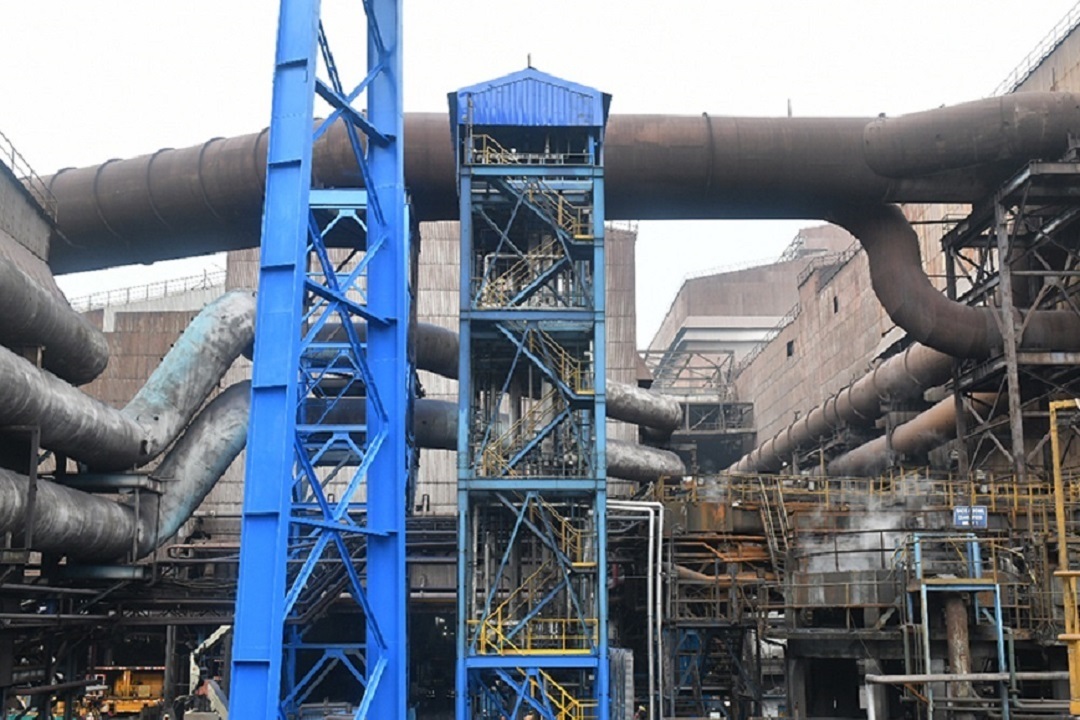Tata Steel is ramping up its focus on sustainable steelmaking with a long-term goal of producing 10–15 million tonnes of steel through recycling methods over the next 10 to 15 years, according to T.V. Narendran, CEO and Managing Director of the company.
In the financial year 2024–25, Tata Steel produced 30.92 million tonnes of steel, out of its total installed capacity of 35 million tonnes, spanning operations in India, the UK, the Netherlands, and Thailand. “One of the key shifts we are pursuing is moving from a linear to a circular model,” Mr Narendran said, highlighting the company’s ambition to integrate recycling deeply into its production processes.
As part of its growth strategy, Tata Steel plans to expand its Indian production capacity to 40 million tonnes by 2030. The company is also restructuring its operations in the UK, where it is transitioning from traditional blast furnace technology to scrap-based electric arc furnace (EAF) steelmaking at its 3 MTPA Port Talbot facility in South Wales.
“In the UK, we have shut down the blast furnaces and are now constructing an EAF. Similarly, we are in talks with the Dutch government to shift to cleaner technologies at our Netherlands plant. By 2035, we aim to phase out all blast furnace operations in Europe,” Mr Narendran stated.
Tata Steel’s Netherlands facility at IJmuiden produced approximately 6.75 million tonnes of liquid steel in FY25. The company plans to shift this production to lower-emission technologies in the coming years. In India, the company has already set up a steel recycling facility near Delhi, and its upcoming 0.75 MTPA recycling-based plant in Ludhiana is expected to be operational by the end of this financial year.
In terms of capacity, Tata Steel operates with more than 26 million tonnes in India and 1.7 million tonnes in Thailand, further supporting its regional and global sustainability goals. Tata Steel, along with its subsidiaries, associates, and joint ventures, employs over 78,000 people globally. The company has set ambitious sustainability goals, including achieving Net Zero by 2045, and is undergoing a multi-year digital transformation to become a leader in ‘Digital Steelmaking’.
Its Jamshedpur, Kalinganagar, and IJmuiden plants have received the World Economic Forum’s Global Lighthouse recognition, and the company has been awarded the ‘Digital Enterprise of India – Steel’ Award 2024 by Economic Times CIO. Tata Steel has also been acknowledged for its commitment to diversity, equity, and inclusion, earning the World Economic Forum’s Global Diversity, Equity & Inclusion Lighthouse 2023 recognition.
A consistent performer on the DJSI Emerging Markets Index since 2012, it has ranked among the top 10 steel companies in the DJSI Corporate Sustainability Assessment since 2016. Tata Steel’s Jamshedpur Plant is India’s first site to receive ResponsibleSteelTM Certification, followed by its Kalinganagar and Meramandali plants, with more than 90% of its steel production in India now coming from ResponsibleSteelTM certified sites.
Tata Steel’s numerous accolades include the Prime Minister’s Trophy for the best performing integrated steel plant for 2016-17, seven consecutive Steel Sustainability Champion recognitions from worldsteel, the 2023 Climate Change Leadership Award by CDP, and recognition as the most valuable mining and metals brand in India in 2024 by Brand Finance. The company has also been recognized with several awards, including the 2023 Global ERM Award of Distinction, ‘Masters of Risk’ at The India Risk Management Awards, and the ICSI Business Responsibility and Sustainability Award 2023.








